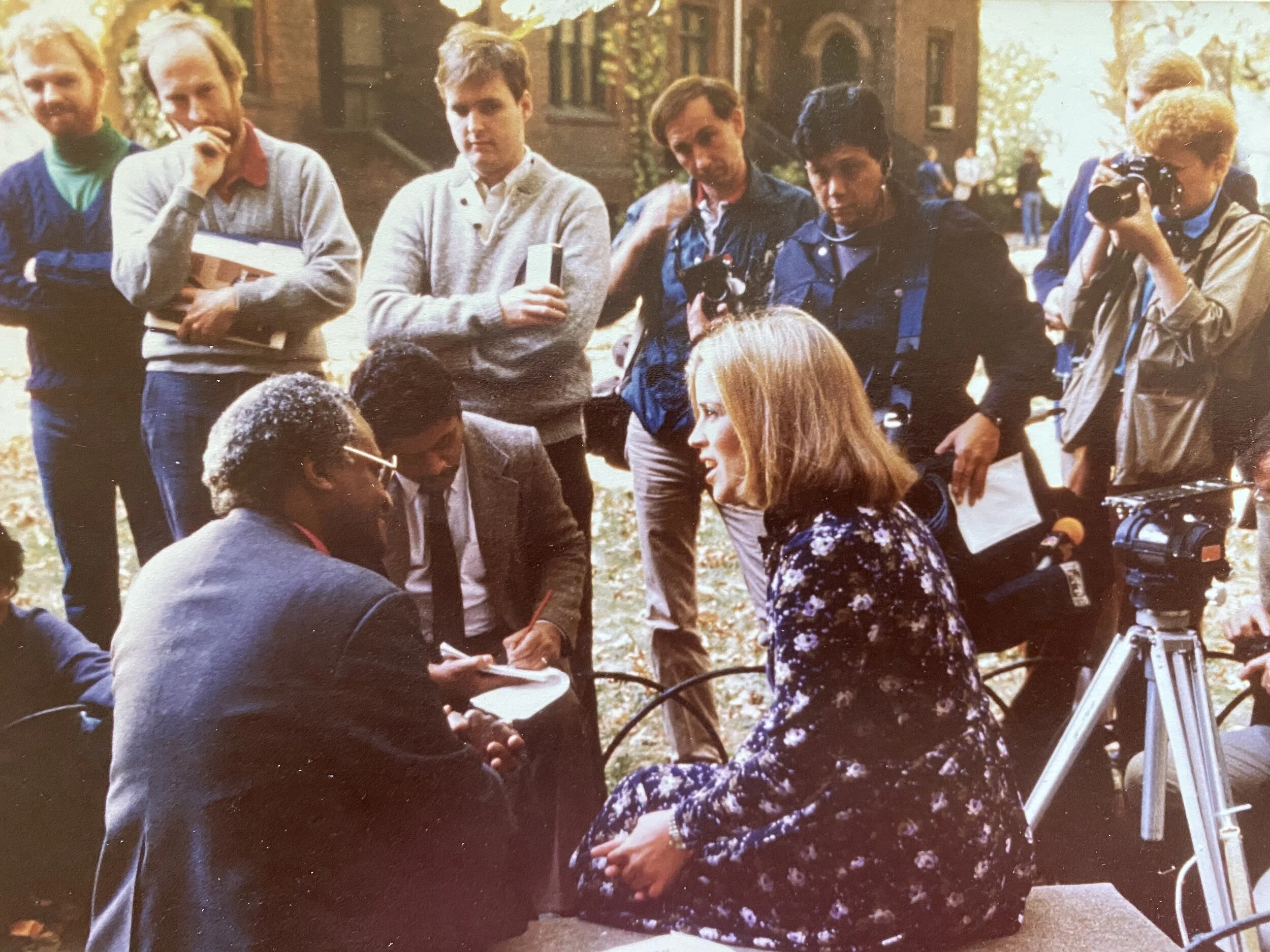

There are many presentation training courses out there, but few do what we do: give you concrete practices that will help you make powerful presentations. Let’s touch on the basics.
It may seem simple, but media training basics aren’t basic at all. Most of us like to create videos or make posts for social media; some of us are interviewed on media platforms, or might even be launching a product and need publicity. But how do you make these efforts successful?
Never has the need for a communications coach been more vital than in today’s world. With the constant flood of information via social media and the internet, the truth is EVERYTHING we say or do might show up on video or be quoted anywhere, anytime, even if you think that’s impossible.
Too many people succumb to the mistaken belief that being likeable comes from natural, unteachable traits that belong only to a lucky few—the good looking, the fiercely social, and the incredibly talented. It’s easy to fall prey to this misconception. In reality, being likeable is under your control, and it’s a matter of emotional intelligence (EQ).
To be an effective communicator, our words and our body language need to be in sync. You can’t say one thing and mean another — your body will give you away. Here are a few tips about using our bodies effectively during television interviews.
The Sunday of the Masters Golf Tournament usually brings some drama, a few magnolias, and great golf swings– not to mention that … uh hum … green jacket. But what struck me from a communication viewpoint had nothing to do with the pars and fairways. It was about three things: poise, graciousness, and raw emotions.
My colleague Mary Civiello wrote this article for Fortune … and she raises some good points about how to deal — not just when speaking to college grads — but actually anytime your subject or YOU might face dissenters. So read up!
It was a chilly damp day in Washington, DC, but that didn’t dampen the enthusiasm of the 800 plus young women attending the 3rd annual OWNit Summit — put on by students for students .. and attracting some of the smartest young women in business to speak to them.
Glossophobia may be defined as a very specific form of stage fright or speech anxiety, which is the fear of speaking in public. Most confident people have experienced some degree of nervousness or anxiety when they have to give a speech, presentation, or perform on stage. They still manage to cope with the occasion even though they are not enjoying it. However, people who suffer from glossophobia (referred to as glossophobics) may deliberately avoid situations where they would have to speak in public.
The concept of being awarded a golden statue — honored by your peers — it’s akin to winning the super bowl, or the world series, the pinnacle of success in a business with much talent, lots of egos, and enormous payouts. Don’t get me wrong, I love movies, and I love watching the Oscars. But I’m looking for is authenticity — which is what we should all strive for when we speak, no matter where it is. I saw a few of those moments last night.
Our innate ability to size up body language has us making judgements from a quick glance at someone. It makes sense .. after all man has been walking on the earth for a couple million years .. we’ve had a spoken language for only 160,000. So why shouldn’t we rely on our primal instincts to give us information about a stranger. I think its why people say — trust your gut. Those instincts saved us from death back in the stone ages. Today they may save us from embarrassment or stupidity.




























